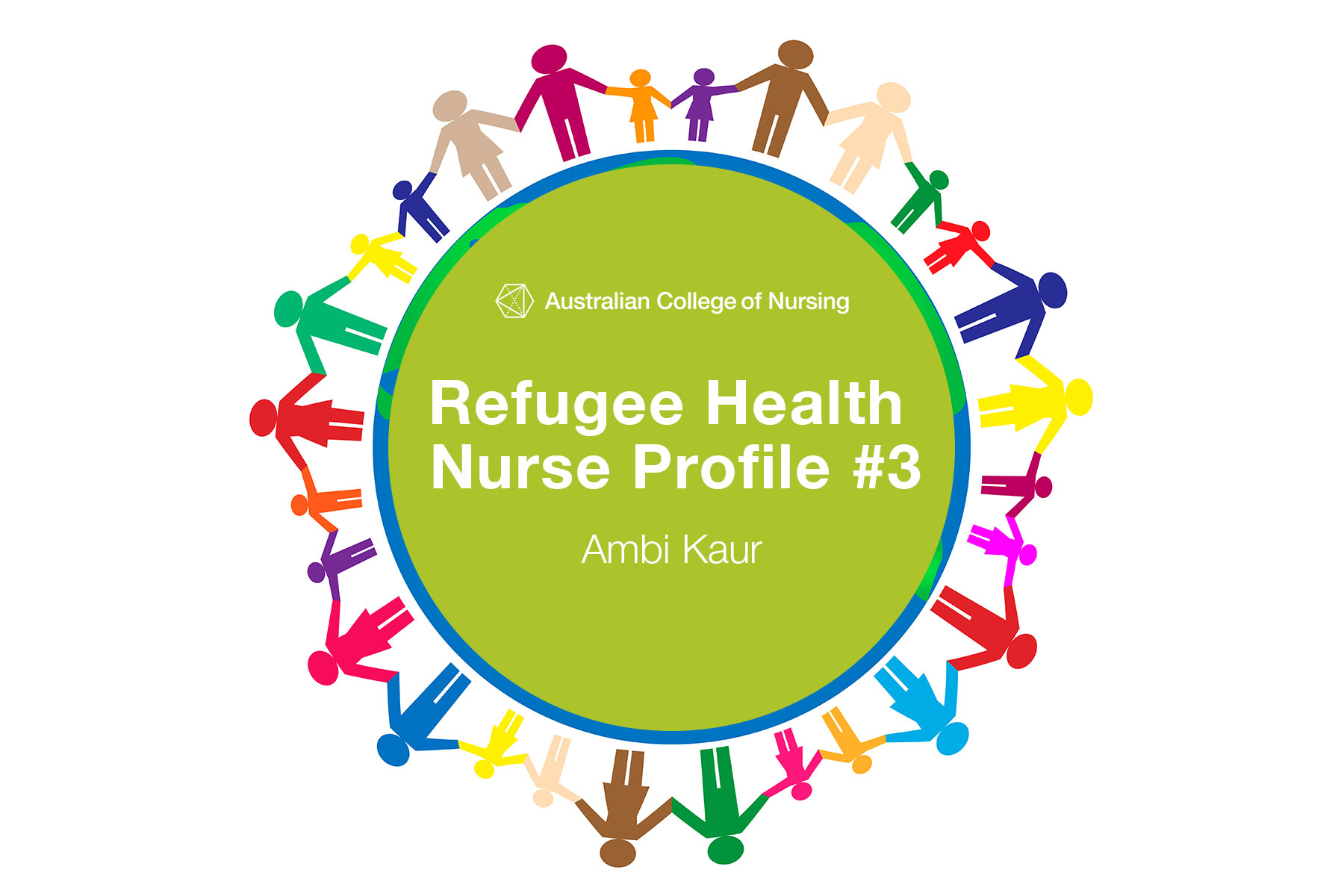Refugee Health Nurses are a diverse group of professionals who use their nursing expertise to care and advocate for those of refugee background or seeking asylum.
To mark Refugee Week 2021 — which focuses on uniting communities — we spoke to three nurses from across Australia to gain an insight into differing roles refugee health nurses play and the issues their patients face during their journey through the Australian health care system. You can view all articles in the series here.
Ambi Kaur
Ambi has cared for people of refugee background and seeking asylum for over 15 years. She shares with us the skills and practical elements of her role as a Refugee Health Nurse supporting communities in Melbourne.
“Refugee health nurses are the first point of contact for new migrants from a refugee background and those seeking asylum in Australia, within the health care system and, alongside General Practitioners, we deliver a social model of care,” she says.
“Initially, this involves a meet and greet period which lasts until the end of the individual immunisations schedules. During this time, we provide our patients with an overview of the health and other service systems and how these can be accessed.”
“We then see them again 9-12 months after the initial contact to check how they are engaging with their local community and health and other services.”
Ambi identified advocacy and relationship building as fundamental to overcome the multiple issues refugee nurses and their clients have within the health system.
Our patients are from all over the world and come from regions and nations such as Africa, the Middle East, South America, Afghanistan, Sri Lanka and Myanmar,” she says.
“Access to education and housing and barriers around IT use and language are some of the main issues impacting those in local area who are of refugee background or seeking asylum.
“A large part of the role of a refugee health nurse is advocacy and patients come to us for advice and life strategies on a range of areas that extend outside health and include navigating Medicare, Centrelink and the education system. Advocacy is particularly important for asylum seekers who do not have access to Medicare.”
“Delivering culturally literate public health advice, traditional health screenings and mental health support are also key components of the role.”
“Many of the people we see have been traumatised or know somebody close to them who has. Anxiety and survivor guilt are also common among our patients.”
The Australian College of Nursing would also like take this opportunity to thank all the nurses who are using their skills to ensure refugees and asylum seekers receive access and equity to heath care in a timely manner delivered by the appropriate health professional in the right place, at the right time. You can read more in our Quality health care for all refugees and asylum seekers Position Statement.





